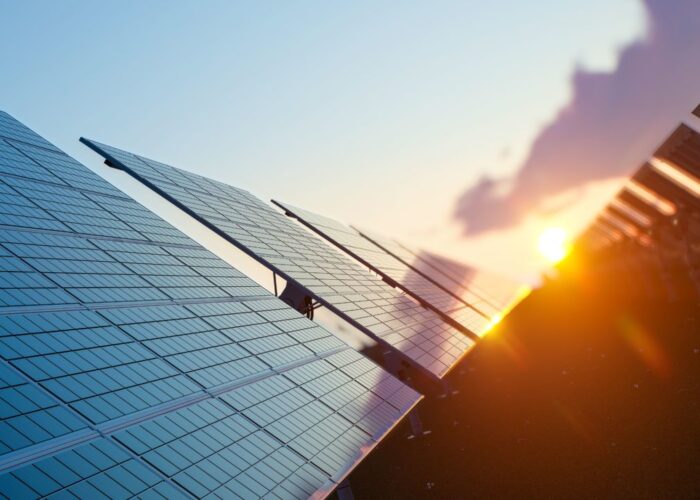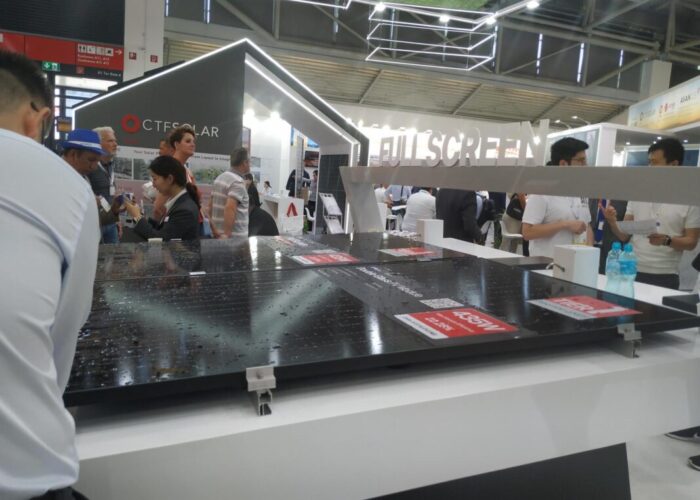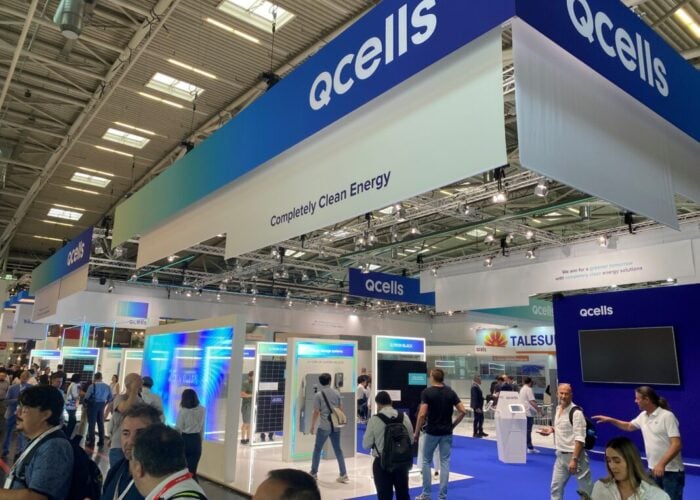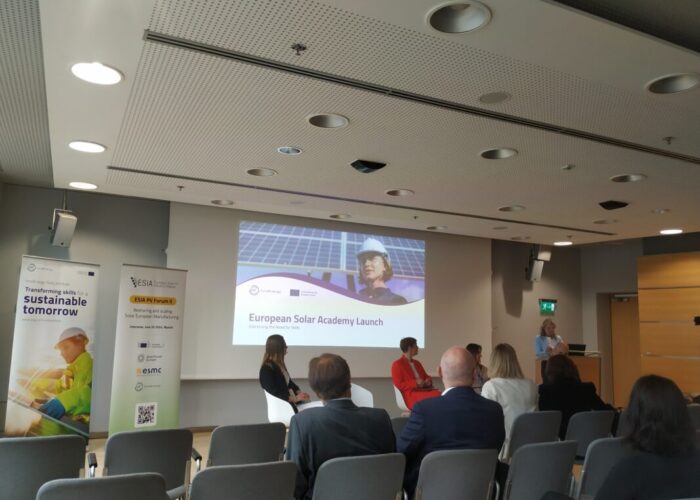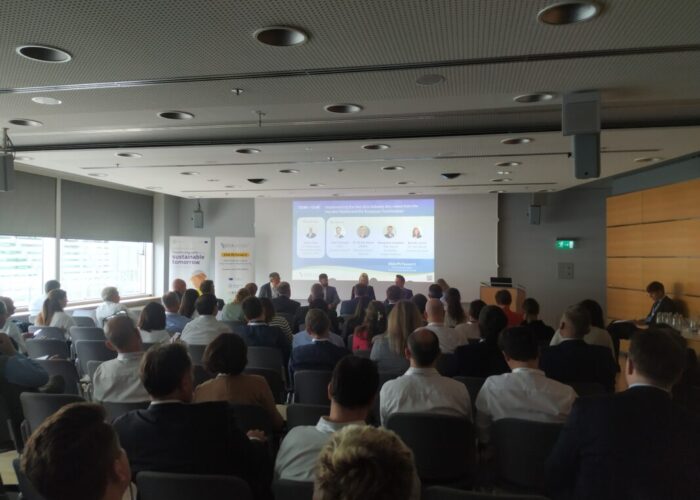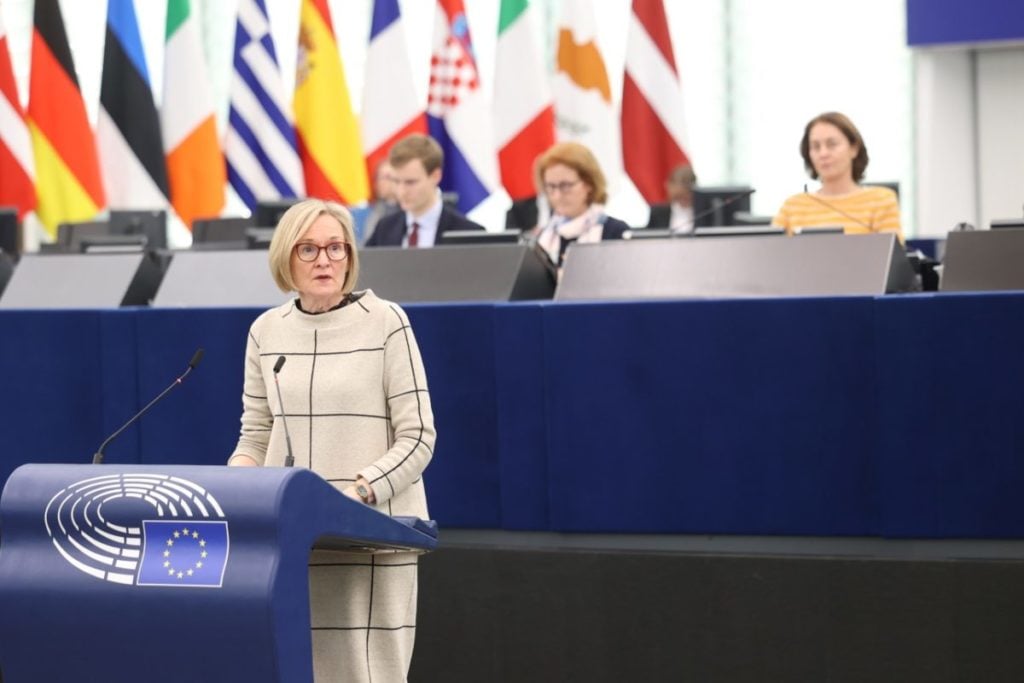
Earlier this week, the European Commission (EC) acknowledged the current challenges European solar manufacturers have faced, yet has fallen short of implementing any measures.
In a statement at the European Parliament, Mairead McGuinness, European commissioner for financial stability at the EC, highlighted solar PV as “one of the key pillars” towards the region’s energy transition. McGuinness also noted that solar is the fastest-growing source of electricity in Europe, and was responsible for 8% of electricity generated in 2023 across the European Union (EU).
Unlock unlimited access for 12 whole months of distinctive global analysis
Photovoltaics International is now included.
- Regular insight and analysis of the industry’s biggest developments
- In-depth interviews with the industry’s leading figures
- Unlimited digital access to the PV Tech Power journal catalogue
- Unlimited digital access to the Photovoltaics International journal catalogue
- Access to more than 1,000 technical papers
- Discounts on Solar Media’s portfolio of events, in-person and virtual
Or continue reading this article for free
The commissioner also added that, in order for the EU to reach its renewables target for 2030, a further acceleration of solar and wind deployment needs to be seen, despite the region’s current high dependence on imports of Chinese equipment.
“The supply of the EU market is highly dependent on imports, as more than 97 % of the solar panels deployed in Europe are imported, mainly from China,” said McGuiness.
Due to the EU’s reliance on imported solar panels to accelerate the growth of its renewables and reach the 2030 targets, the commissioner ruled out the implementation of anti-dumping measures to safeguard the domestic solar industry towards China’s products.
“When justified, the EU also has instruments to tackle unfair trade practices such as dumping of injurious subsidisation – when that is in the overall Union interest, we can take that action,” said McGuiness. “Given that we currently rely to a very important degree on imports to reach EU solar deployment targets, any potential measure needs to be weighed against the objectives we have set ourselves when it comes to the energy transition.”
Calls for emergency measures
The lack of any emergency measures being implemented comes in contrast with the industry’s reiterated calls for some, with the European Solar Manufacturing Council (ESMC) calling for such measures as recently as last month.
Its secretary general, Johan Lindahl, spoke to PV Tech Premium about the measures that could be implemented and mentioned the possible buyout of European manufactured stock to help companies cover the cost of fabrication and get a cash flow for the stocks they currently have.
McGuinness argued that the EU is working on implementing instruments to support the solar industry, such as the Net-Zero Industry Act (NZIA), which reached an agreement on Tuesday between the European Parliament and the European Council.
Last year, it also adopted the Green Deal Industrial Plan (GDIP), and created a supportive environment to help scale up the renewables industry, of which the NZIA is a part of.
“The NZIA includes several measures relevant for the solar panel sector. In particular, it aims at the leveraging of public demand through renewable energy auctions and public procurement, using resilience and sustainability criteria to favour the diversification of the sourcing of net-zero technologies,” said McGuinness.
Regarding the announcements from the commissioner, solar trade body SolarPower Europe called for further support to the manufacturing industry.
Walburga Hemetsberger, CEO of SolarPower Europe, said: “While we acknowledge the commissioner’s comments on the role of the NZIA and the EU Solar Strategy, as well as other existing tools, we are compelled to stress that further urgent action is still needed to support EU solar manufacturing.
“European solar manufacturers are in a different landscape compared to May 2022, when the EU Solar Strategy was announced. Manufacturers are going bankrupt. More support, and better access to support, is critically needed.”
Plummeting solar panel prices
Alongside the fact that the price of solar panels has fallen by over 40%, there is considerable strain on several European players across the supply chain since. Last month, solar cell and module manufacturer Meyer Burger announced plans to cease its module activity in Germany, and focus on the US market, and is the latest European company to change direction amid these challenging times.
That announcement came after last year’s NorSun, a Norwegian solar ingot manufacturer, stopped its production due to “exceptionally low prices” of Chinese solar modules; while REC Group abandoned its polysilicon operations in Norway.
Coincidentally, polysilicon was among the assets – along with inverters and trackers – that the commissioner highlighted in her speech about Europe’s strong assets and producers globally.
In her speech, the commissioner also spoke about the European Solar PV Industry Alliance that was launched in December 2022 and targets 30GW of manufacturing capacity across the entire value chain by 2025. “This is a pipeline of projects waiting for a financing decision,” said McGuinness.
Financing aid measures
Although McGuinness spoke about measures and financial frameworks in place – such as the Temporary Crisis and Transition Framework (TCTF) – to help the industry, these are targeted towards bringing new capacity online and without clear signals to the likes of Meyer Burger, which already have operational capacity.
As a result, both established companies and industry newcomers looking to bring module capacity in Europe in the coming months and years face what Lindahl called a “dire situation”.
“Also start-ups with gigawatt-scale plans are facing a dire situation, as it has been difficult to attract financing already since last summer, when the module prices started to drop quickly in June. Already, that was a warning signal from many investors,” said Lindahl.
However, there have been some positive developments. In contrast to the situation endured by the majority of the European solar industry, the module manufacturing subsidiary of Italian utility Enel, 3Sun, secured €560 million in financing for its 3GW heterojunction module assembly plant in Sicily, Italy last month. The financing was made through several entities, including the European Investment Bank.
Updated on 08 February: the article previously said the NZIA was currently being discussed, although a provisional deal has been reached on Tuesday (06 February).


